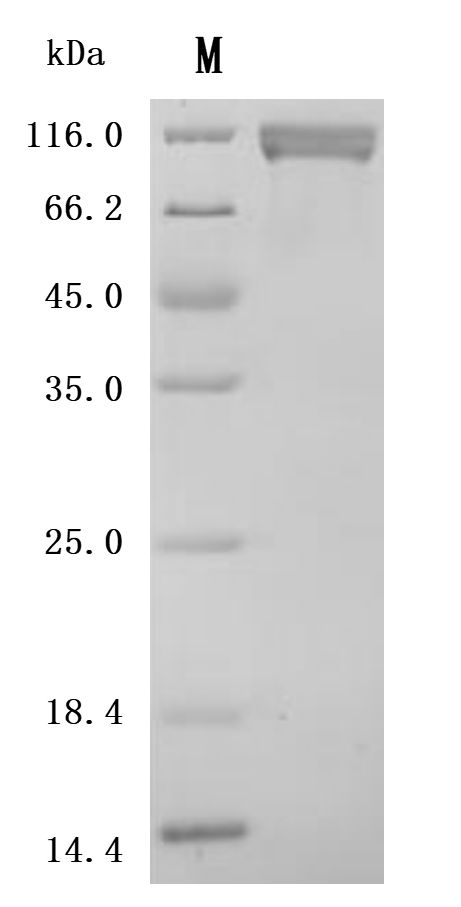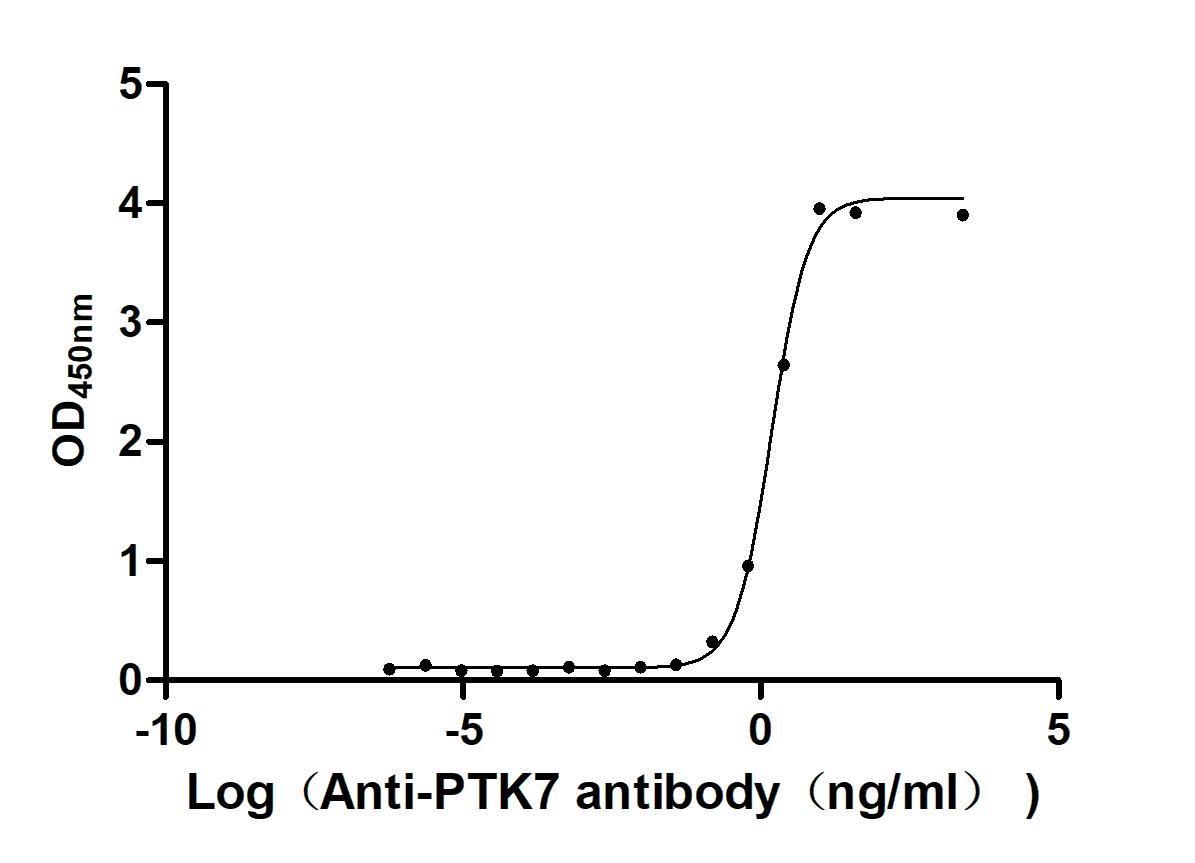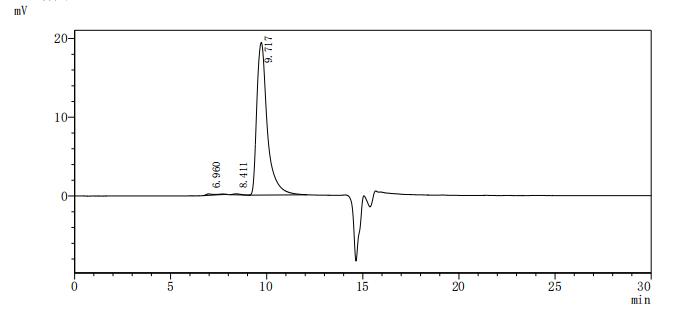The recombinant Macaca fascicularis PTK7 protein is a biologically active molecule synthesized in a mammalian expression system. It comprises amino acids 39 to 712 of the native PTK7 sequence and features a C-terminal 10xHis tag. The tag facilitates purification and detection in downstream applications. This recombinant PTK7 protein demonstrates exceptional purity, exceeding 95% as verified by SDS-PAGE and SEC-HPLC. Its activity is validated through a functional ELISA. PTK7 immobilized at 2 μg/mL effectively binds the anti-PTK7 recombinant antibody (CSB-RA622651MA1HU), with an EC50 between 1.399 and 1.666 ng/mL. These attributes make this recombinant PTK7 protein a reliable reagent for applications in cell signaling research, receptor-ligand interaction studies, and antibody screening.
PTK7 plays multiple significant roles in cellular processes, especially in the context of development and immune responses. In Macaca fascicularis, also known as the cynomolgus macaque, PTK7 has been studied within various biological contexts, including its implications in immunological responses and developmental pathways.
PTK7 regulates various signaling pathways essential during cell communication and cellular development. It has been shown to affect cellular behaviors such as proliferation, migration, and differentiation in mammalian systems [1][2]. Specifically, PTK7 is known to interact with components of the Wnt signaling pathway, which is critical during embryonic development and tissue homeostasis. Dysregulation of PTK7 expression can cause developmental abnormalities and has been linked to oncogenic pathways in several cancers [3].
PTK7 is expressed in immune cells and has been recognized for its function in modulating T-cell activation and B-cell differentiation [4]. Its presence in cynomolgus macaques provides a valuable model for understanding these processes, as they exhibit a similar immune system architecture to humans, which raises the translational potential of findings derived from studies using this species. For example, investigations have shown that PTK7 may influence the balance of immune responses during viral infections, with some studies suggesting its role in T-cell responses to various pathogens [5][6].
Moreover, the expression and role of PTK7 in Macaca fascicularis have been linked to other physiological processes, including reproductive biology and organogenesis [7]. Understanding PTK7 in cynomolgus macaques benefits immunological research and provides insights into its developmental roles across primate species [8].
References:
[1] D. Willer, A. Ambagala, et al. Experimental infection of cynomolgus macaques (macaca fascicularis) with human varicella-zoster virus. Journal of Virology, vol. 86, no. 7, p. 3626-3634, 2012. https://doi.org/10.1128/jvi.06264-11
[2] J. Julian, A. Enders, A. Fazleabas, & D. Carson. Compartmental distinctions in uterine muc-1 expression during early pregnancy in cynomolgous macaque (macaca fascicularis) and baboon (papio anubis). Human Reproduction, vol. 20, no. 6, p. 1493-1503, 2005. https://doi.org/10.1093/humrep/deh801
[3] Y. Sun, J. Zhou, et al. Development of a recombinant rbd subunit vaccine for sars-cov-2. Viruses, vol. 13, no. 10, p. 1936, 2021. https://doi.org/10.3390/v13101936
[4] W. Sesbuppha, S. Chantip, et al. Stillbirths in macaca fascicularis. Journal of Medical Primatology, vol. 37, no. 4, p. 169-172, 2008. https://doi.org/10.1111/j.1600-0684.2007.00275.x
[5] Y. Xu, J. Zhan, Y. Zheng, et al. Synovial fluid dynamics with small disc perforation in temporomandibular joint. Journal of Oral Rehabilitation, vol. 39, no. 10, p. 719-726, 2012. https://doi.org/10.1111/j.1365-2842.2012.02307.x
[6] J. Zhai, J. Guo, et al. Primate gastrulation and early organogenesis at single-cell resolution. Nature, vol. 612, no. 7941, p. 732-738, 2022. https://doi.org/10.1038/s41586-022-05526-y
[7] G. Liu, L. Zhang, et al. Selection and investigation of a primate model of spontaneous degenerative knee osteoarthritis, the cynomolgus monkey (macaca fascicularis). Medical Science Monitor, vol. 24, p. 4516-4527, 2018. https://doi.org/10.12659/msm.908913
[8] I. Bjelobaba, V. Begović-Kuprešanin, S. Peković, & I. Lavrnja. Animal models of multiple sclerosis: focus on experimental autoimmune encephalomyelitis. Journal of Neuroscience Research, vol. 96, no. 6, p. 1021-1042, 2018. https://doi.org/10.1002/jnr.24224









